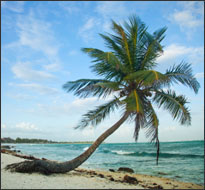As the world financial crisis that began in 2007 stretches into 2012, its effects are being felt everywhere: confidence in banks has slipped, more families have no liquid assets and international migration is down. Not surprisingly, tourism has been affected as well, with a range of impacts domestically and internationally.
A 2010 report in the The Journal of Travel Research, “Impacts of the World Recession and Economic Crisis on Tourism: North America,” looks at how the financial crisis affected travel in Canada, the United States and Mexico. The researchers, at the University of Calgary, George Washington University, and the Universidad de Colima, based their report on multiple data sets on tourism from 2004 to 2009.
In the United States:
- Tourism within and to the United States fell steadily in the year and a half following the 9/11 attacks. “Over the six quarters from peak to the fourth quarter trough, real travel demand fell by 9.5%. In contrast, the nation’s real GDP rose by 1% during this period.” From this low point, demand grew at a rate of 3.7% per year until reaching a new peak in the third quarter of 2007. At the same time, real GDP lagged, growing just 2.7% a year.
- The current economic downturn began in December 2007; by early 2009, the GDP of the United States fell by nearly 4%, the severest decline since the World War II.
- By the first quarter of 2009, real travel demand had fallen 6% over six quarters. “This drop so far has been considerably milder than what had occurred after the 9/11 attacks. But the decline has been at twice the rate as real GDP has fallen.”
- Tourism employment peaked at nearly 6 million jobs in the first quarter of 2008. From then through the first quarter of 2009, more than 250,000 jobs were lost in the sector.
- Despite continuing mild inflation, “travel prices have fallen twice as fast in the current recession as they did after the 9/11 attacks.”
In Mexico:
- Despite natural disasters and ongoing issues with domestic security, from 2005 until the first half of 2008, international arrivals in Mexico grew at almost 6% annually. However, there was significant variation along the way, including drops of 5.35% in 2006 and 3.9% in 2007. “The data [confirm] that there are other factors that have a greater impact on Mexico’s tourism industry than the collapse of the financial markets and the level of economic activity.”
- The exchange rate between the Mexican peso and other currencies has a major influence on the inflow of international visitors. “Ironically, when the Mexican economy falters and the peso is devalued, the tourism sector benefits as Mexico’s tourist services are more affordable in the eyes of foreign visitors.”
For Canada:
- From 2007 to 2008, Canadian spending in the United States decreased by 15% and U.S. spending in Canada fell by 6%.
- In May 2009, international travelers made 1.4 million overnight trips to Canada, a 7% decline from the previous year.
The researchers conclude that the impact of the recession on tourism “has been rather uneven … and other past events have had an even more significant impact, except for Canada.”
Tags: tourism, financial crisis


Expert Commentary